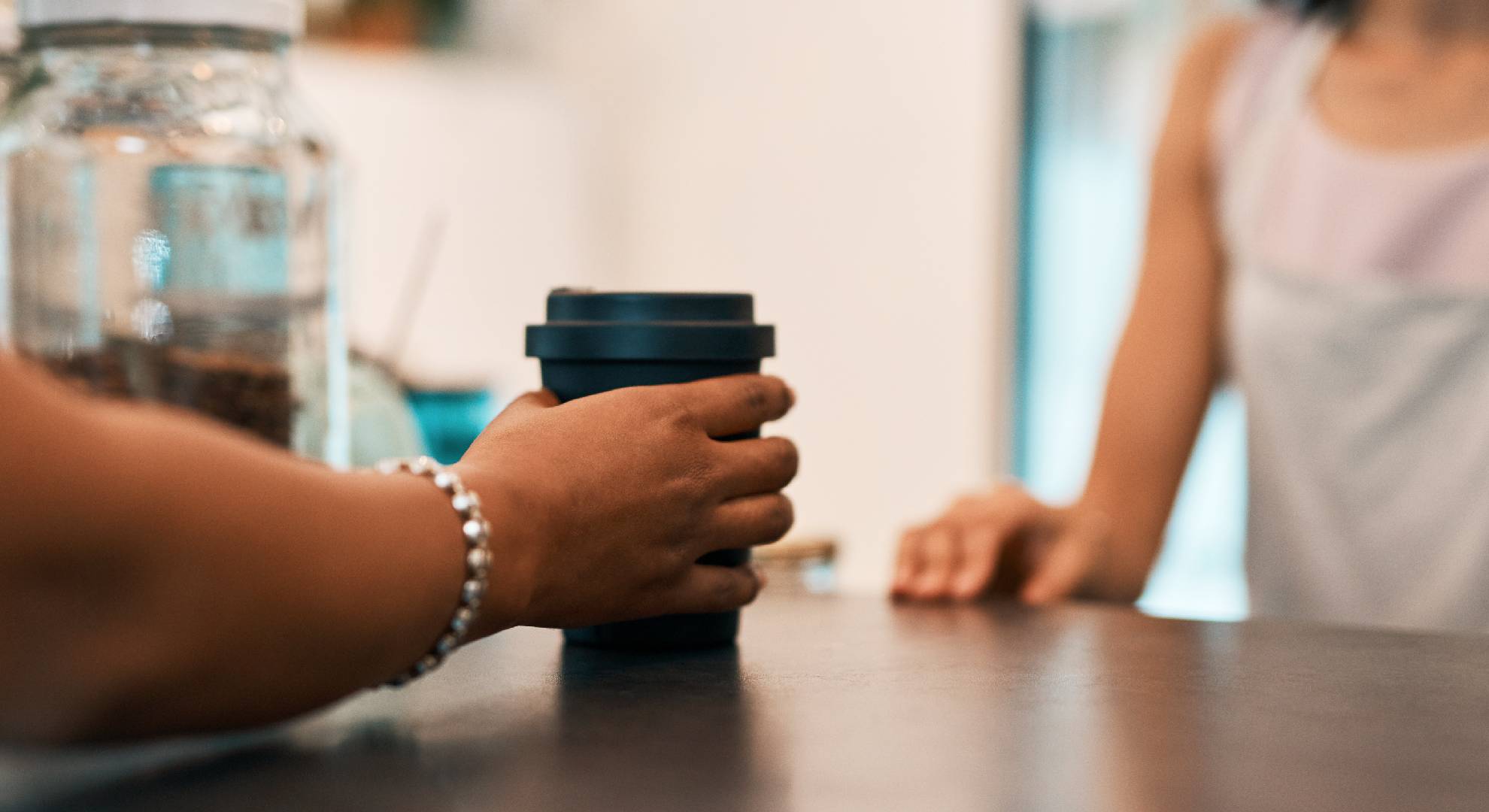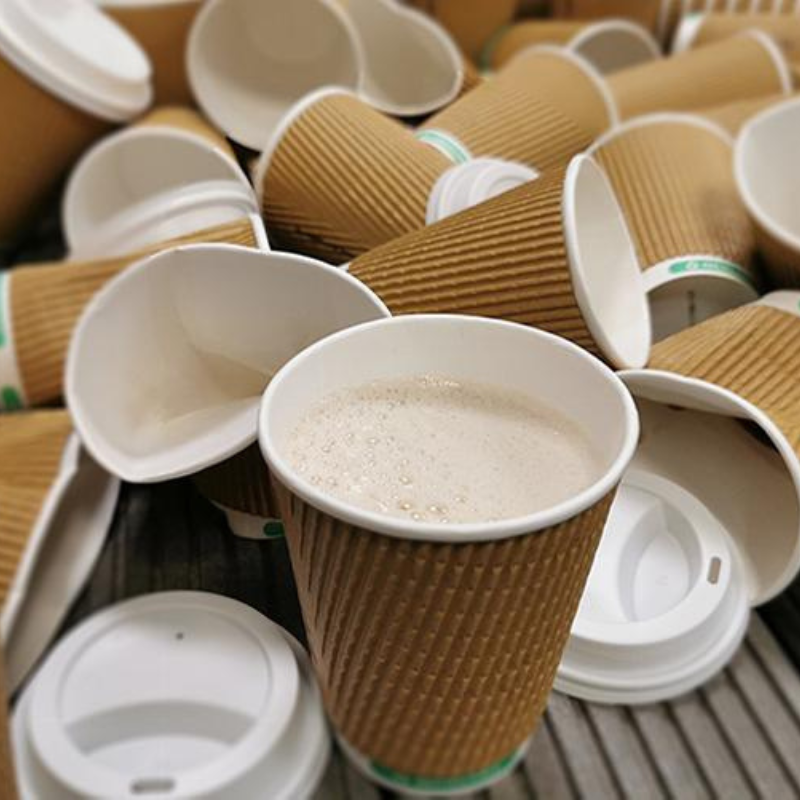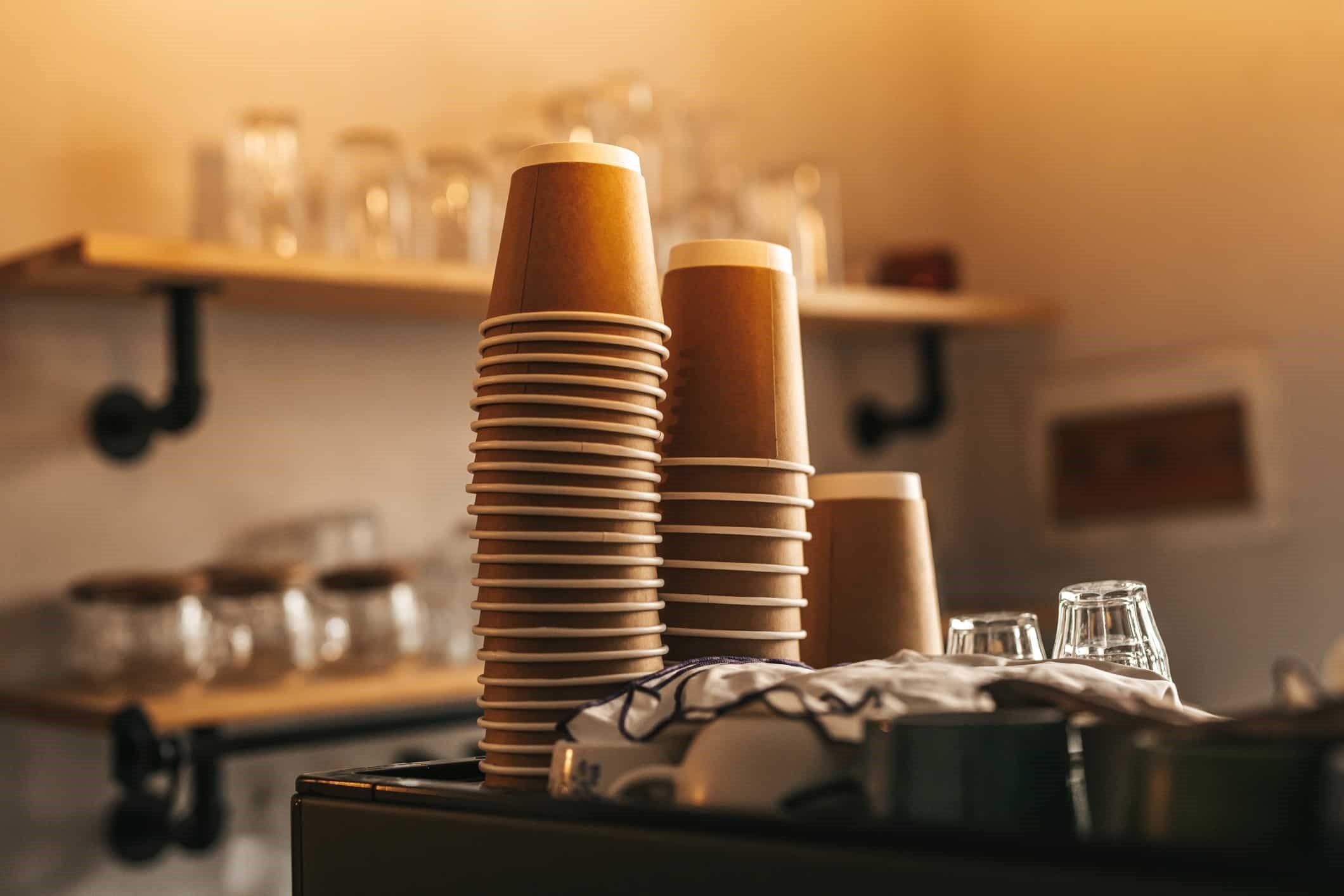
Single-use disposable beverage cup charge consultation
The Scottish Government consultation on introducing a mandatory minimum charge on single-use disposable beverage cups in Scotland closed on Thursday 14th November 2024.
The consultation provided an opportunity for organisations, businesses and the general public to feed into the policy proposal.
Background to the consultation
An estimated 388.7 million single-use cups are used in Scotland each year (source). This is the equivalent to 71 cups per person per year, one of the highest rates compared to nations in the European Union.
More than half of people in Scotland (56%) think more needs to be done to tackle single-use items and back additional measures such as bans or charges to reduce the amount of single-use cups we use, according to our recent survey.
The consultation proposed a minimum charge for single-use disposable beverage cups which all suppliers of beverages in single-use cups would be required to charge, with a small number of exceptions.
The charge would cover all types of single-use disposable beverage cups, regardless of materials.
Single-use cups are problematic mixed material items that are often littered. Reducing the number of single-use cups we use is key to reducing their environmental and social impact.
Introducing a charge on single-use cups could help reduce these impacts. Our survey showed that 60% of people in Scotland would buy fewer beverages in single-use cups if these were charged for, while 74% said a charge would encourage them to use a reusable cup more. Survey conducted by Savanta on behalf of Zero Waste Scotland July 2024 with 2080 adults in Scotland.

Our ‘Reducing single-use' hub
Zero Waste Scotland supports the proposed charge as it will help encourage a switch to reusable cups. Zero Waste Scotland has already worked on several trials for reusable cups which could provide useful insights for your own business.
74% of people surveyed said a charge would encourage them to use a reusable cup more.
Key dates
- Consultation launched on 22 August.
- Consultation was open for 12 weeks and closed on 14 November
FAQs
What is a single-use cup?
A single-use or disposable cup is one that is designed to be used only once and then thrown away. Engagement with stakeholders, including the consultation, is ongoing to determine definitions to be used in the final regulations.
The proposed charge would cover all types of disposable cups, regardless of the single-use material they are made from or the drinks they are used for.
How much could this charge be?
The consultation proposes various options and is suggesting a minimum charge of 25p and is seeking views on this.
Why is it happening?
We live in throwaway society, and disposable items like single-use cups are a needless contribution to the stuff we waste.
They’re a drain on the planet’s finite natural resources and a commonly littered item we see on our streets, beaches, and green spaces. Yet they could be easily avoided by switching to reusable options.
Scotland already has a single-use plastics ban on the manufacture and supply of certain single-use plastic items in place to limit the sale and use of other disposable items, like plastic cutlery, drink stirrers, and polystyrene takeaway boxes. With an estimated 388.7 million single-use cups used in Scotland each year, there’s a clear need to take action to reduce these next.
Will there be any exemptions from the charge?
The consultation proposes a limited number of exemptions based on purpose or setting, for example, it’s proposed that the charge will not apply when a drink is free, such as non-retail settings like hospitals or care homes, in schools and when a drink is purchased in a single-use cup from a vending machine. The charge will also not apply in some situations where a reusable cup is not an alternative option e.g. large-scale events where for safety reasons, reusable cups are not permitted.
What is Zero Waste Scotland's role?
Zero Waste Scotland is working with the Scottish Government in supporting and communicating the consultation.
Zero Waste Scotland has also conducted and published research on single-use cups, including several pilot projects, which has been used to inform the proposals.



